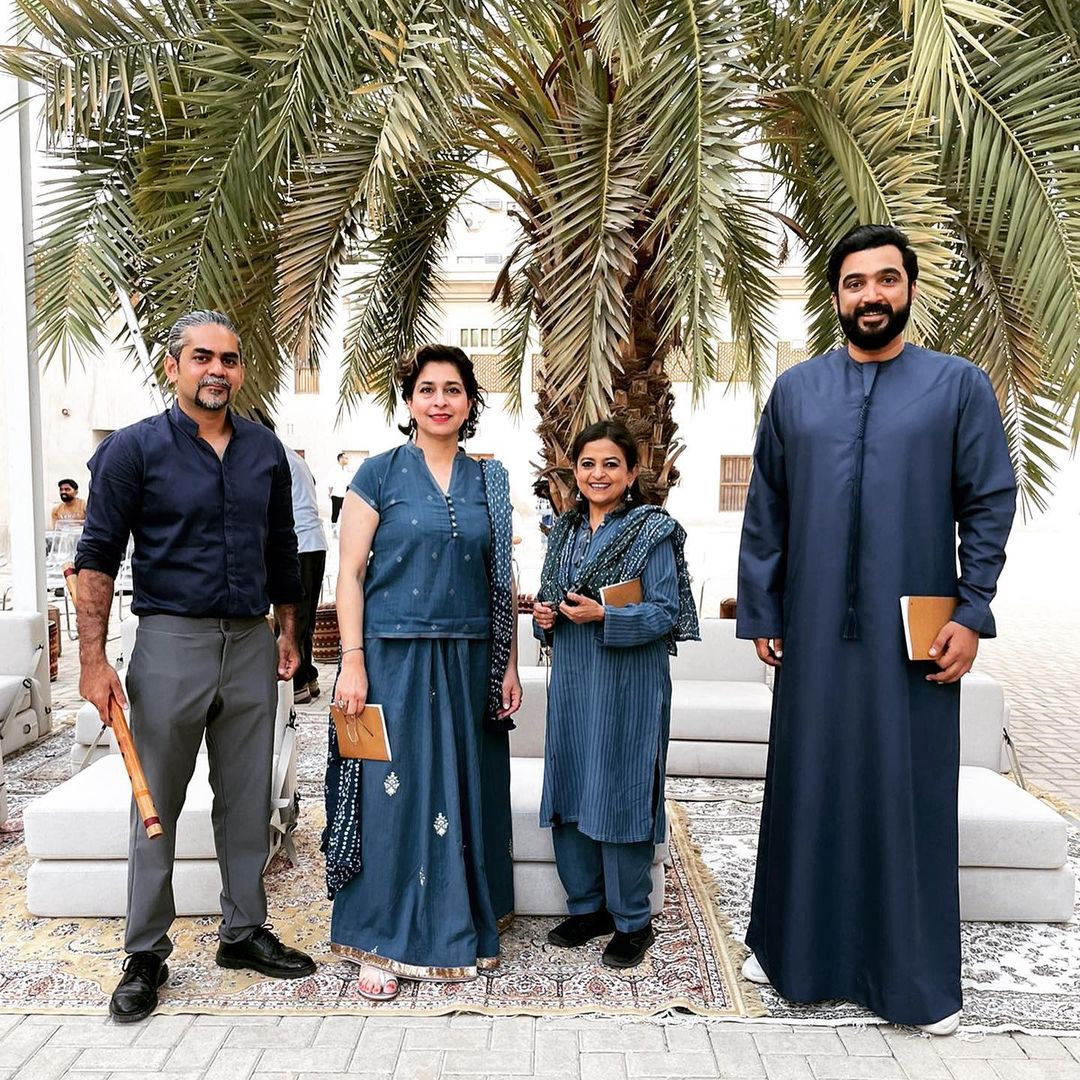KARACHI: Artists from Pakistan and the UAE who collaborated for a performance at this year’s Sharjah Biennial called it an “amazing experience” to work with and learn from artists from around the world who came together for the large-scale contemporary art exhibition that takes place once every two years in the United Arab Emirates.
Sharjah Biennial 15: Thinking Historically in the Present (SB15) opened on February 7, 2023, and will run through June 11, featuring over 150 artists from more than 70 countries. The event was conceived by the late Nigerian art critic curator Okwui Enwezor and is curated by Hoor Al Qasimi, a leading figure in the international art world and the director of the Sharjah Art Foundation.
In a major honor, Pakistani visual artist Naiza Khan, who works between Pakistan and the United Kingdom, was invited by Qasimi to develop the performance and filmic work for SB15. Khan also conceived a performance, Yet Still Moving, that brought together three readers and a flutist for an improvised, polyphonic, trilingual reading that took place on the evening of March 8 at the Bait Obaid Al Shamsi Arts Square.
Besides Khan, the performance features visual artist and theater practitioner Asma Mundrawala, Sharjah-based actor Nabeel Al Mazem and Lahore-based flutist Haider Rahman.
“Staging this in Sharjah was very important for me and I wanted the performance to be grounded in this region of UAE,” Khan told Arab News on Monday.
“I had planned the performance to be trilingual, with Arabic, Urdu and English, so that it was inclusive of the audiences in Sharjah and not only accessible to an English-speaking audience. There are a lot of people working in UAE who come from South Asia, and so Urdu, which is my mother tongue, was also important.”

(L-R) The picture posted on March 10, 2023, shows Flutist Haider Rahman, visual artist Naiza Khan, visual artist and theater practitioner Asma Mundrawala and Sharjah-based actor Nabeel Al Mazem at Sharjah Biennial in Sharjah, UAE. (@naiza_khan_art/Instagram)
According to the website of SB15, the performers of Yet Still Moving “create an improvised polyphonic reading that examines how the passage of time changes both a place and the artist as chronicler.”
“The performance makes an embodied walking map— through cities, monsoons and bodies of water— and invites audiences to be a part of this ‘making-scape’,” the website said.
A special composition by Haider Rahman accompanies the readers and is based on the melodic framework called Raag Megh Malhar, traditionally associated with monsoon clouds.
The performance, Khan said, reflected her long engagement with Manora Island that sits just off the coast of the Pakistani port city of Karachi, and with other urban landscapes of cities she had re-visited over the last fifteen years.
“We had about 100 plus visitors attend, people came from Dubai as well as Abu Dhabi. We were all very pleased with the positive response,” Khan said. “The prominent curator and writer, Octavio Zaya, said this performance was like, ‘seeing politics in poetry and poetry in politics’.”
The remote rehearsals for the project began in early 2022 on zoom, and included writing and editing the script, followed by translations into Urdu and Arabic. The filming was done in London, Karachi and Sharjah.
“I didn’t feel like there were any borders between us,” Al Mazem, who read the Arabic script, told Arab News on Sunday.
“It is very nice to engage the people and artists in UAE, mainly Sharjah, with the artists [across the world]. They will get a lot of information, ideas, and a lot of beautiful things to do. I am happy to work with Pakistani artists. It was an amazing experience.”
Though the performance took place in Sharjah, the audience included people from Germany, Europe, America, Japan and the Middle East: “The Arab people were happy. They got our message.” Al Mazem said.
Flutist Rahman said he chose Raag Megh Malhar for the composition “as the work was based around water.”
“Raag Megh Malhar is associated with water and monsoon and it instantly gelled with it,” Rahman, who has been practicing eastern classical music for over 25 years and has represented Pakistan on several international platforms, told Arab News on Sunday.
Mundrawala, a practitioner of dramatized readings who read the Urdu script of the performance, said it was an “exceptional” experience.
“Engaging the audience through language and oral storytelling strategies is part of my artistic skills and strengths. I lent these abilities to the project and simultaneously embraced the knowledge and qualities that the other participants brought to it in order to work toward a cohesive whole,” she told Arab News on Sunday.
“It was wonderful to perform in the Bait al Shamsi courtyard, with its serene and inviting environs. The audience was very appreciative and engaged.”












